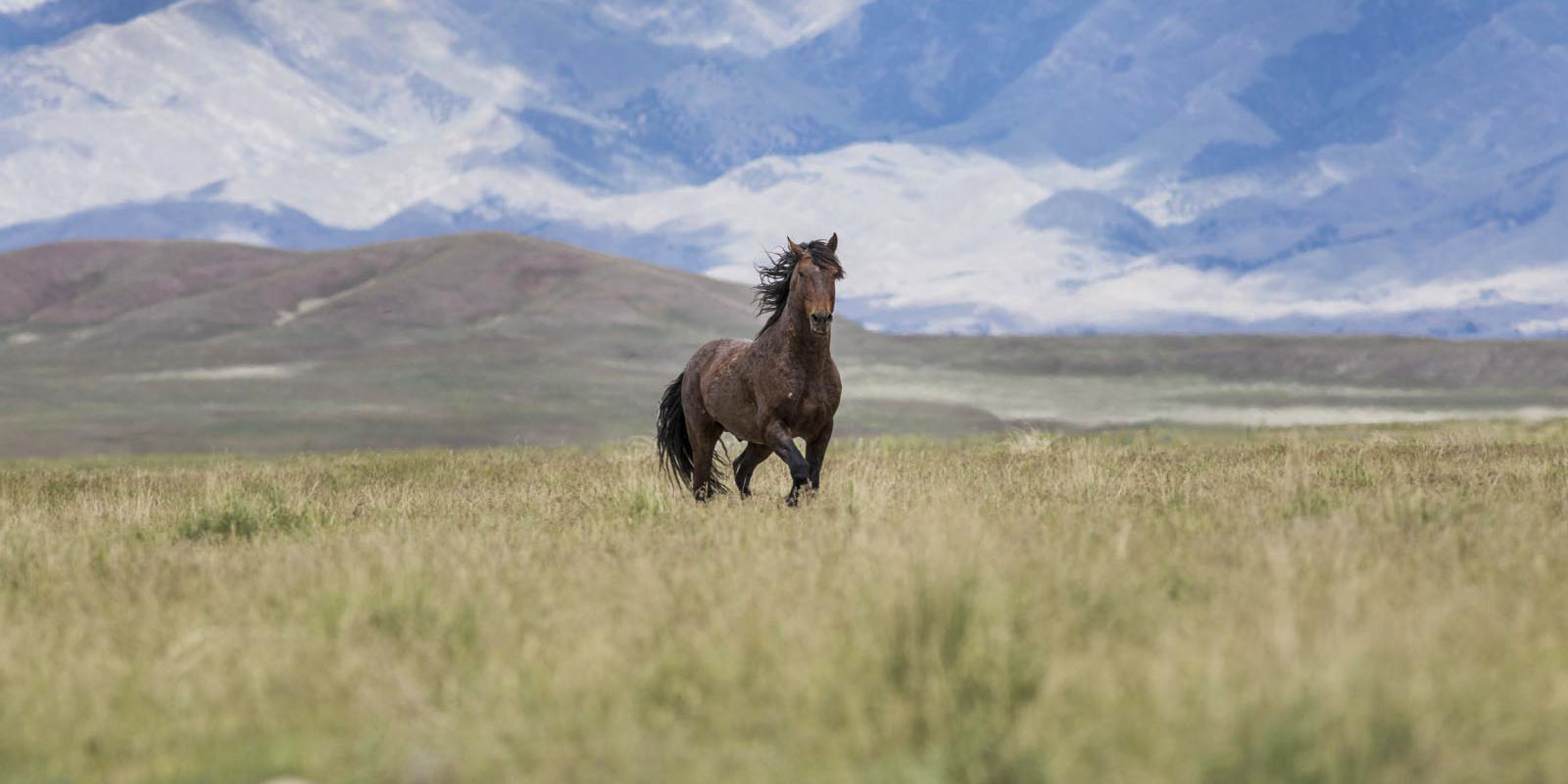(December 19, 2019) How does the PACT (Preventing Animal Cruelty and Torture) Act affect wild horses? Does it apply to the BLM? Short answer, it doesn’t.
Well what’s the long answer? It’s complicated and is very interesting for all of you crime junkies out there. So saddle up and let’s get started!
The PACT Act fills loopholes created by the United States vs. Stevens Supreme Court case and a subsequent Animal Crush Video Prohibition Act, passed in 2010.
This Supreme Court case overturned a 1999 animal cruelty law, which criminalized the intentional creation, sale or possession of a depiction of animal cruelty with the intent of selling the depiction, but only when this is done so for commercial gain. Under the law, “depiction of animal cruelty” is defined as video, audio recording, still photos and other forms of media that record or document a living animal is intentionally maimed, mutilated, tortured, wounded or killed.
The case was brought to the U.S. Supreme Court in 2009 by a Virginia author and documentarian named Robert J. Stevens. Stevens claimed himself as a pit bull expert. He wrote a whopping 648-page “manual” for owning a pit bull. He also sold organized dogfighting videos and documentaries and gruesome videos of pit bulls hunting. He did this under the guise of helping owners understand their new dog. Although, he advertised his products and videos in “Sporting Dog Journal” an underground, illegal magazine on dog fighting. So, what were his intentions? Is he a good guy or bad guy in this story? I’ll leave that up to you to decide.
Undercover federal agents eventually discovered Stevens’ business and arrested him in 2004. He was charged under the 1999 law for depicting animal cruelty in violent videos for the purpose of interstate commerce laws. He was the first person whose case proceeded to trial under the 1999 law and was later sentenced to 37 months in prison.
Stevens’ appeals eventually went to the Supreme Court. The court accepted the case in 2009 and oral arguments were heard shortly thereafter. The Justices voted 8-1 to throw out the 1999 law. The decision, written by Chief Justice John Roberts, found that the law was overly broad and violated Stevens’ First Amendment rights to free speech. Roberts argued that depictions of animal cruelty should not be added to the list of constitutionally unprotected categories of speech, like child pornography. Roberts argued that “depictions of animal cruelty” was not well-defined and that there was no tradition in U.S. courts of protecting animals.
Justice Samuel Alito wrote the lone dissent. His main concern was the rise in popularity of “crush videos,” which fulfill a sexual crush fetish. These videos depict mainly faceless women in high heels crushing and otherwise torturing small animals on camera. In his dissent, Alito argued, "The animals used in crush videos are living creatures that experience excruciating pain. Our society has long banned such cruelty.” He was concerned overturning the 1999 law would allow crush videos to flood the underground market because the majority court ruling would have "the practical effect of legalizing the sale of such videos."
Shortly after the court struck down the 1999 law and Stevens’ conviction, Congress passed the Animal Crush Video Prohibition Act, which was signed into law by President Obama in 2010. This act made the creation, sale, and distribution of crush videos a federal offense. This was a good first step towards protecting animals, but it applied only to the filming and did not outlaw the underlying acts of cruelty themselves.
This is where the PACT Act comes in, signed into law on November 25th, 2019. To close this loophole, the PACT Act clearly defines crushing and crush videos. It prohibits intentionally engaging in crushing an animal for the purpose of interstate or foreign commerce and broadly defines “crushing” as “actual conduct in which one or more [animals] is intentionally crushed, burned, drowned, suffocated, impaled, or otherwise subjected to serious bodily injury…” The law continues to criminalize the creation and distribution of crush videos and makes crushing and distribution a felony with fines and imprisonment of up to seven years. Finally, the law enables federal intervention when prosecuting cruelty under this law is beyond the resources or reach of a state.
So, now you have all the information on the PACT Act. Is this a great law? Yes, of course. We should celebrate any law aimed at the protection and preservation of animals, but this act will not stop the BLM’s current cruel mismanagement of wild horses. That’s why we need to keep pushing on.
We need to keep bringing lawsuits and keep setting precedent to protect wild horses. We need to keep funding and implementing humane fertility control. We need to keep educating legislatures on the cruelty of wild horses and burros face at the hands of the BLM. The passage of the PACT Act demonstrates that Congress cares, members just need to be made aware of the issue and where their constituents stand on it. This is why AWHC documents as many roundups as possible, acting as watchdogs to expose the cruelty and inspire change.
This is why we need YOU to keep calling your legislators and keep educating them. Change can’t come around without you, the constituent. We won’t stop fighting for our national icons, will you?


